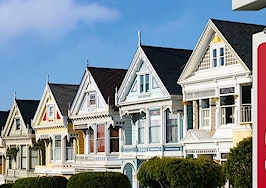- The California housing market has rarely seen negative sales growth during an election year.
- California home sales in the final months of an election year picked up by an average 5.3 percent, compared to a 1.8 percent drop posted during the final months of non-election years.
- 70 percent of California survey respondents who plan to buy a home said they would like presidential candidates to discuss affordable housing policies during the campaign trail.
If you’ve been paying attention, you know this year’s presidential election is anything but regular.
But is the highly-publicized and lesser-of-two-evils narrative creating hesitation among California homebuyers?
The run isn’t over, so it’s too early to say for 2016. Historically, however, elections have little impact on the Golden State housing market, a California Association of Realtors (CAR) election analysis shows. In fact, the election typically correlates with an uptick in demand and pricing.
“Market fundamentals such as housing inventory, affordability, interest rates, job growth and consumer confidence are the real factors that influence the housing market,” CAR President Pat “Ziggy” Zicarelli said.
Each election year since 1990 has been a bit different, with some months showing growth or mild decline in home sales, as compared overall — but the Golden State market has rarely seen negative growth during an election year.

In California, the election appears positive for the housing market, with an average sales growth of 7.1 percentage points at the end of the presidential voting year.
[Tweet “In California, the election appears positive for the housing market”]
How the election affects slower sales months
Since 1990, California home sales dip by an average 2 percent during the final four months of the year, but not in election years.
Aside from one instance — December 2004 — the final quarter of an election year shows sales higher than usual. Sales in the final months of an election year picked up by an average 5.3 percent, compared to a 1.8 percent drop posted during the final months of non-election years.

Given the increased demand among California homebuyers, home price growth at the end of the past five election cycles was reportedly better than the long-term average growth (5.6 percent). Following the vote, prices lifted approximately 5.6 percentage points.
Broadening the housing conversation
In a poll conducted by The Futures Company in partnership with the Center for California Real Estate, 70 percent of survey respondents who plan to buy a home said they would like presidential candidates to discuss affordable housing policies during the campaign trail.
Regardless of race or income, consumers agreed access to housing should be addressed throughout campaigns in order for voters to make informed decisions come November.
Unfortunately, neither Hillary Clinton nor Donald Trump has expressed detailed plans for affordable housing programs, aside from goals to increase homeownership rates across the nation. The study did not review campaigns of third-party candidates.






